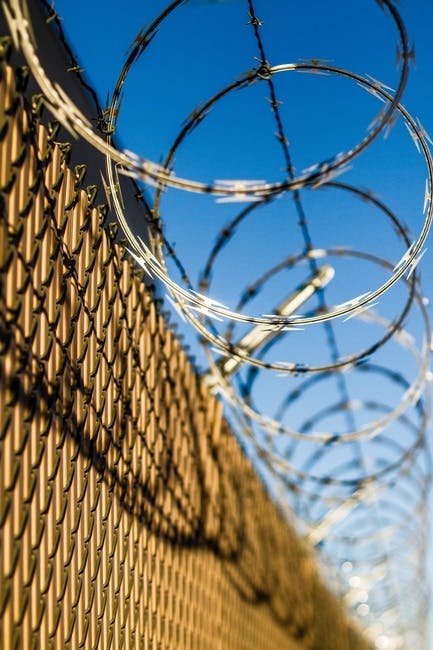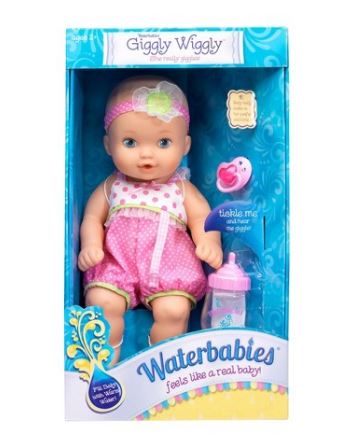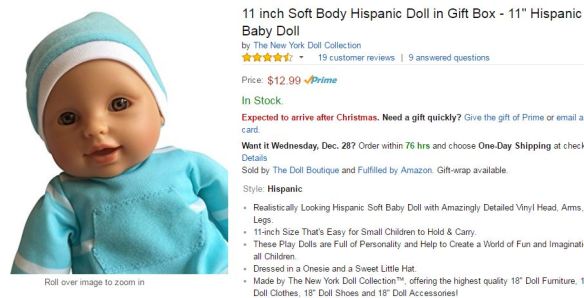
In light of the many events in the past few years that have brought police brutality and mass incarceration to the attention of the American public, I’d like to share my experiences with coming to the realization that these are indeed problems, and add my voice to the many that are discussing how we can address this. Too many people in my country are still denying these issues, saying black people are provoking the police, claiming that it’s just a few bad apples, or that black people are breaking the law more than white people. As with many things in life, there’s way more to this issue than meets the eye.
I’m a short white girl, so unsurprisingly, I have never experienced police brutality in my own life. I have, however, seen the results of police brutality and mass incarceration on a community I lived in, where I served as a volunteer throughout college.
I went to college in a city with a majority black population. A poor city where a good education is nearly impossible to attain. The city used to thrive, until the day came when its many factory jobs were outsourced to places where labor is cheap. As the jobs dried up, the people who could afford to leave packed their bags and moved somewhere better. Everyone else would stay on, getting jobs as janitors. As food service people. As cashiers at Walmart. Legitimate jobs to be sure, but jobs that usually cannot support a family, or even a single individual, without some other source of income. When those jobs failed to provide the people in that city with what they needed, they turned to other means.
I can’t fault someone as much for selling drugs when that’s the only valuable thing in their city. Yes, there are cruel people in the world, but crime isn’t always as simple as the Saturday morning cartoons I grew up watching. Sometimes people join gangs to have a family. To have support, or protection from violence. To feel like they belong somewhere, when nothing in their life feels like a home should. People die that way. People go to prison. But no one stops to address the route causes of these crimes.
When I was in college, I volunteered as a tutor at an after-school program near campus, helping local kids with their homework. While I was there, I watched a girl in second grade deal with the fact that her mother had just been arrested. She came in with tears in her eyes several weeks in a row, and the adults there had to take her aside to help her cope. She was a very bright child, with a reading level well above her grade level–so much so that even in her poor school district, she was being given more challenging reading assignments from 3rd and even 4th grade. I sometimes wonder where she is now. If all’s well with her, she’ll have finished 6th grade by now. Was she doing work for 7th or 8th that whole time last school year, or have the traumas of life in her city ripped the love of learning out of her? Her younger sister by a year or two had no idea what was happening at the time. Why mommy was gone. That was perhaps the saddest thing for the older sister, because in many ways I think she felt very alone through all this. Her sister was too young to understand what had happened.
Another day, when I was tutoring at the same place, a police siren went off in the distance, and one of the other children–not one of the aforementioned sisters, but yet another child–immediately started to cry. That was when the reality hit me. For some people, especially in cities like that one, the police aren’t the good guys who protect us. They take mommy and daddy away. And, as I would later learn, they beat or even kill parents in front of their children. A four year old was in the car when Philando Castile was shot and killed. Imagine the life that child may have going forward. It’s hard to focus on your school work when you’ve seen someone get killed right in front of your eyes in close quarters. Especially someone you know. A four year old shouldn’t be dealing with death, much less murder.
This is the reality for some people at a very early age, but if you’re white, and you’re growing up in a wealthy school district, this is not your reality. I didn’t attend public school, but my homeschooling community set up a field trip where we visited our local police station. The police joked with us, told us stories, and talked about crime fighting in a positive way. I looked up to the officers who spoke with us. It was one of my favorite “homeschool field trip” experiences. They showed us my town’s jail cells and jokingly let us walk in and pretend to be arrested. They showed us the restraint they use for unruly, dangerous arrests, and I didn’t imagine someone getting abused in it. I imagined the police using it to restrain someone who was a genuine danger to others. I had full and complete trust in the men in blue who protected my town, because they’d never given me a reason to think otherwise. But in the next state over, in the city where I went to college, there was probably a child walking into one such jail with a parent in tow, coming to bail out mom or dad after a routine traffic stop. The jail cells in my affluent town were empty the day we visited. I promise you, in some places, they are always full.
We need to indict the officers responsible for these shootings. They need to be tried, and steps need to be taken to stop this from happening again. I have some ideas. I’m not the first person to say this, but I think it bears repeating:
- TRAINING. So many of these terrible scenarios could have been avoided if the police officers had been able to take control of the situation in a way that works on calming people down, not riling people up. It’s human nature to amp up your volume and increase your forcefulness in a stressful situation when you’re an authority figure, but people in a job like theirs need to realize this, and to know how to calm themselves and others. They also need to assess the situation realistically. Training should include teaching them to be sensitive to the different experiences of people of different backgrounds. Also, and this is a big one for me, they need training regarding how to handle mentally unstable people. When the police are called to help the mentally ill, it often doesn’t end well.
- Police should look like the communities they’re policing. A mostly black neighborhood with a mostly white police force is doing something wrong. The police should be invested in the communities they’re serving. They shouldn’t feel like the people they’re interacting with on a daily basis are part of an “other” outside group.
- We need to make it easier, not harder, for people to film the police. Police officers should wear body cameras, and there should never be any question of legality when it comes to filming the police. It’s beginning to seem like that’s the only way they’re being held accountable: the court of public opinion. That shouldn’t be the case though. We also need to take the next step once footage of a police officer misbehaving surfaces. They need to face reasonable consequences for the severity of the misdeed. I’m not saying every mistake they could make is worthy of termination or charges, but if you’re killing people on the job then yeah, I’d like to see both.
- We need to address mass incarceration, and the way in which the United States criminal justice system is being used to oppress minorities. I only wish I were imagining this, but unfortunately investigations of police forces known to be involved in cases of police brutality have turned up a widespread pattern of abuse and racial profiling. In other words, contrary to what we’d all like to believe, it’s not just a few bad apple cops. It’s often an entire police force. The roots of mass incarceration are three fold: the behavior of the people enforcing the law, the laws that are being written without regard for minorities, and the situations that lead people to choose crime in the first place. Poverty is a massive factor. With poverty comes a major deficit in opportunity. We need to address all of this, not just one part of it, if we want this issue to go away completely.
- We need to talk about race, but in a more nuanced way. Racism isn’t always overt. It’s not just people knowingly making judgments based on race. It’s not just about hiring discrimination, housing discrimination, wage discrimination, and dropping the N word around. It’s not just about lynchings, and people having a problem with biracial couples. It’s not just when people knowingly say or do cruel things because of someone’s race. Racism is in the assumptions we make unconsciously too, and those assumptions are some of the most pervasive ones because we tend to not notice them when they’re happening.
Even with all the things I just said, I am very aware that I HAVE RACIST TENDENCIES. I tense up when an unfamiliar black man walks by, far more so than with a large white man. I shouldn’t be afraid of these people I’ve never met, but I am. I’m trying not to be this way. I’ll be the first to admit that it’s hard, but I do think that with time I can unlearn at least some of this negative conditioning. I think the first step to fixing a problem is realizing you have one. My hope is that others will come to the same realization and begin to take the steps to change.
If we want racism to end, we need to catch ourselves making that snide remark. We need to stop judging people who speak differently from us, whose hair is a little bit different, whose skin is a different color. We need to walk past the black man on the park bench calmly, comfortably, without clutching our purses in a panic. We need to recognize that unfortunately the police may not always handle an emergency involving diverse people very well, and if they fail to behave appropriately, we need to stand up for the people being abused. We need to find it in us to question authority when necessary, especially for those of us who are coming from a place of white privilege. It’s fucking tragic that I have to say it, but if they won’t listen to the black voices, the voices of the victims and their families, maybe they’ll listen to us.
If you have thoughts or experiences related to this issue, feel free to share them. Please be respectful of others and think things through before posting.
Happy thinking.
Nancy
 My office recently participated in a Christmas donation program, where people signed up to buy presents for various children in need. Participants were each given a child’s name, age, gender, and a small wish list with gift suggestions. The child I was assigned was a 7-year-old girl who wanted a baby doll, books, and a digital toy I wasn’t familiar with. We really only had to buy one gift per child, but I decided to get her a baby doll and a couple of books since children’s books at her age aren’t very expensive, and I figured, how hard can it be to choose a baby doll for a 7-year-old? It turns out, when you don’t know what the child looks like/likes, it’s kinda difficult. I wound up just upping the number of books and getting the kid a significant stack.
My office recently participated in a Christmas donation program, where people signed up to buy presents for various children in need. Participants were each given a child’s name, age, gender, and a small wish list with gift suggestions. The child I was assigned was a 7-year-old girl who wanted a baby doll, books, and a digital toy I wasn’t familiar with. We really only had to buy one gift per child, but I decided to get her a baby doll and a couple of books since children’s books at her age aren’t very expensive, and I figured, how hard can it be to choose a baby doll for a 7-year-old? It turns out, when you don’t know what the child looks like/likes, it’s kinda difficult. I wound up just upping the number of books and getting the kid a significant stack.





